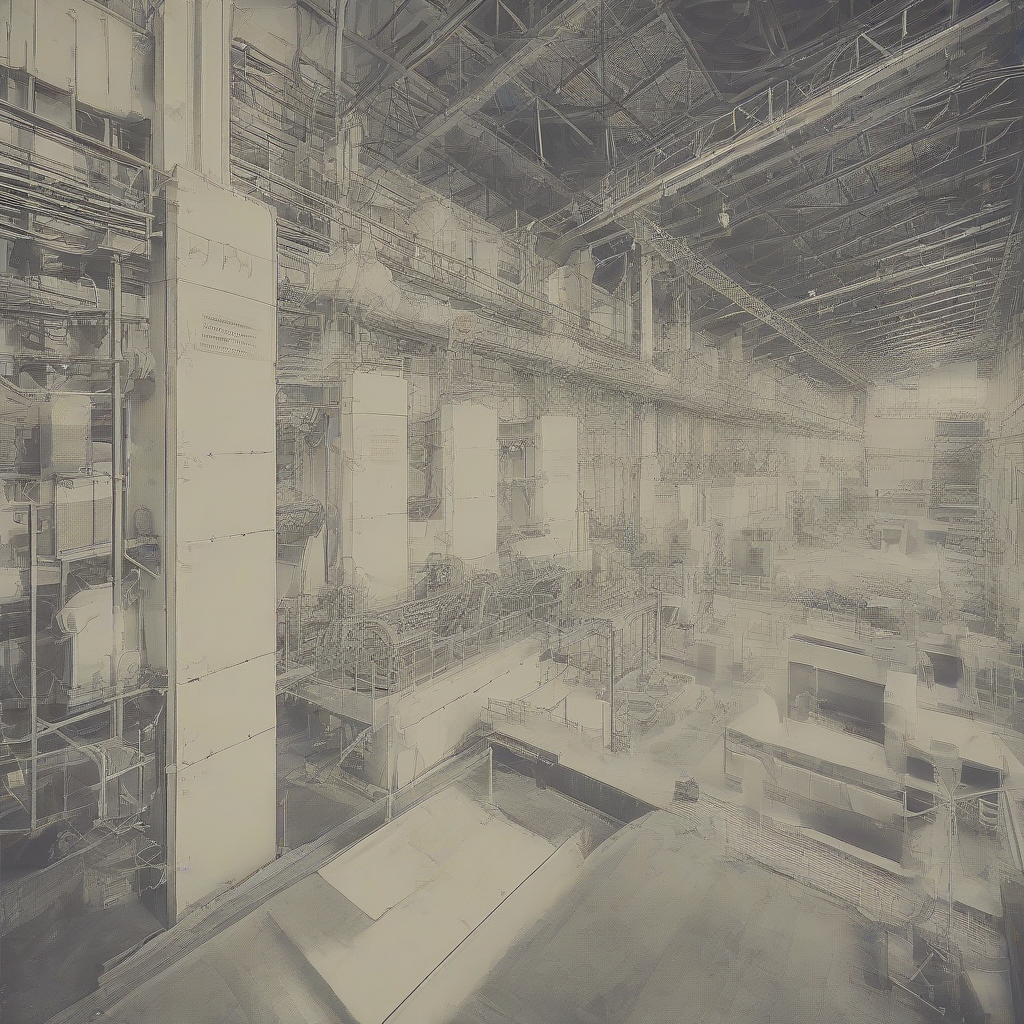Industrial Service and Supply: A Deep Dive into the Backbone of Modern Industry
The industrial sector, encompassing manufacturing, energy production, construction, and countless other vital operations, relies heavily on a robust network of industrial service and supply companies. These businesses provide the essential components, maintenance, and support systems that keep industries functioning efficiently and productively. This exploration delves into the multifaceted nature of industrial service and supply, examining its key segments, the challenges faced, and the future trends shaping this critical sector.
Key Segments of the Industrial Service and Supply Industry
-
MRO (Maintenance, Repair, and Operations) Supplies:
This segment forms the bedrock of industrial service and supply. It encompasses a vast range of products crucial for maintaining operational efficiency, including:
- Fasteners: Bolts, nuts, screws, rivets, etc., vital for assembly and repair.
- Bearings: Essential components for reducing friction and ensuring smooth machinery operation.
- Power Transmission Equipment: Belts, pulleys, chains, and gears for transferring power within machinery.
- Hydraulic and Pneumatic Components: Cylinders, valves, pumps, and fittings crucial for automated systems.
- Safety Equipment: Personal protective equipment (PPE), safety signage, and other crucial safety measures.
- Electrical Components: Wiring, switches, circuit breakers, and other electrical components for power distribution and control.
-
Industrial Equipment and Machinery:
This segment extends beyond MRO supplies, encompassing the provision of large-scale machinery and equipment integral to industrial processes:
- Heavy Machinery: Cranes, excavators, bulldozers, and other construction and materials handling equipment.
- Processing Equipment: Machines used in manufacturing, such as lathes, milling machines, and presses.
- Specialized Equipment: Customized machinery and tools tailored to specific industrial needs.
- Automation Systems: Robots, programmable logic controllers (PLCs), and other automated systems enhancing efficiency and precision.
-
Industrial Services:
This segment focuses on providing specialized services crucial for maintaining and optimizing industrial operations:
- Maintenance and Repair Services: On-site maintenance, repair, and overhaul of industrial equipment.
- Inspection and Testing Services: Ensuring compliance with safety standards and operational efficiency through regular inspections.
- Engineering and Consulting Services: Providing expert advice on optimizing processes, improving efficiency, and implementing new technologies.
- Training and Development Services: Equipping industrial workers with the skills and knowledge to operate and maintain equipment safely and effectively.
-
Logistics and Distribution:
Efficient supply chain management is vital for the timely delivery of industrial supplies and equipment. This involves:
- Inventory Management: Optimizing inventory levels to minimize storage costs and ensure timely availability.
- Transportation and Warehousing: Efficiently moving supplies and equipment from suppliers to industrial facilities.
- Order Fulfillment: Processing and delivering orders accurately and promptly.
Challenges Faced by the Industrial Service and Supply Industry
The industrial service and supply industry faces a dynamic landscape with several significant challenges:
-
Global Competition:
Increasing globalization has intensified competition, with businesses facing pressure from both domestic and international players.
-
Supply Chain Disruptions:
Global events, such as pandemics and geopolitical instability, can disrupt supply chains, leading to delays and shortages.
-
Technological Advancements:
The rapid pace of technological change necessitates continuous investment in new technologies and skilled workforce development.
-
Sustainability Concerns:
Growing environmental awareness is pushing industries towards sustainable practices, requiring suppliers to offer eco-friendly products and services.
-
Skills Gap:
A shortage of skilled labor, particularly in specialized areas like engineering and maintenance, poses a significant challenge.
-
Economic Fluctuations:
The industry is sensitive to economic cycles, with demand fluctuating in response to changes in industrial output.
-
Regulatory Compliance:
Meeting ever-evolving safety, environmental, and other regulations adds complexity and costs.
Future Trends Shaping the Industrial Service and Supply Industry
The industry is poised for significant transformation driven by several key trends:
-
Digitalization and the Internet of Things (IoT):
The increasing adoption of digital technologies, including IoT sensors and data analytics, is transforming industrial operations. This allows for predictive maintenance, optimized inventory management, and improved efficiency.
-
Additive Manufacturing (3D Printing):
3D printing is revolutionizing the manufacturing process, enabling on-demand production of customized parts and reducing reliance on traditional supply chains.
-
Artificial Intelligence (AI) and Machine Learning (ML):
AI and ML are enhancing industrial processes by automating tasks, optimizing resource allocation, and improving predictive capabilities.
-
Sustainability and Circular Economy:
The shift towards a circular economy is driving demand for sustainable products, services, and waste management solutions.
-
Automation and Robotics:
Automation and robotics are increasing productivity and improving safety in industrial settings, necessitating specialized services for their maintenance and integration.
-
Increased Focus on Data Security:
With the increasing reliance on digital technologies, data security is becoming paramount, requiring robust cybersecurity measures.
-
Collaboration and Partnerships:
Successful navigation of the challenges and opportunities necessitates increased collaboration among companies across the industrial ecosystem.
In conclusion, the industrial service and supply industry plays a pivotal role in supporting the smooth operation of various industrial sectors. Its complexity, however, demands continuous adaptation and innovation to address the challenges and harness the opportunities presented by technological advancements and evolving market dynamics. The future of this industry hinges on embracing digitalization, sustainability, and collaborative partnerships to ensure the continued efficiency and productivity of modern industry.
